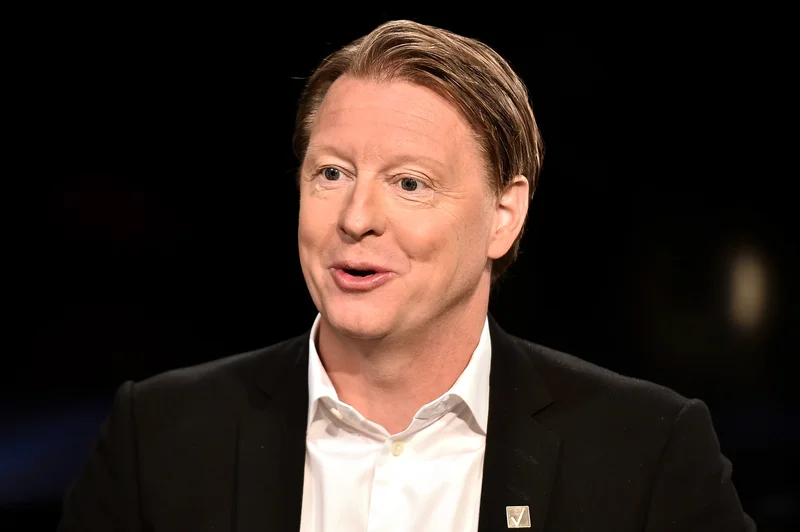When the news broke that Hans Vestberg was stepping down as CEO of Verizon, the market did what it always does with uncertainty: it flinched. A three percent dip in the stock price felt like the predictable, knee-jerk reaction from a Wall Street that sees a leadership change as a problem to be solved. But I believe they’re missing the point entirely. This isn't a story about a failing report card or a simple corporate reshuffle. This is the story of a necessary evolution.
What we’re witnessing is the great uncoupling of the telecom industry from its 20th-century mindset. When I read the news that Verizon names former PayPal boss Dan Schulman as new CEO, replacing Hans Vestberg, I honestly felt a surge of optimism. This is the kind of move that signals a company is ready to stop talking about technology and start talking about people. For years, the race has been about infrastructure—who has the most towers, the fastest millimeter-wave speeds, the biggest spectrum auction checkbook. But that’s like judging the dawn of the automotive age by who could build the most miles of asphalt. The roads are essential, yes, but the real revolution is about where people want to go.
Vestberg, an engineer and a former professional handball player, was a builder. His tenure was defined by massive, concrete investments in the network. He led Verizon through the 5G era, dropping a staggering $52.9 billion on C-band spectrum and pushing a strategy heavily focused on mmWave—in simpler terms, that’s the super-fast, but very short-range, version of 5G that works best when you’re standing right next to the tower. He built the digital highways. But along the way, the company lost its narrative. It lost its crown as the undisputed "best network" to a scrappier, smarter T-Mobile, and it started bleeding the one thing that matters most: customers. The Analysis: Why Verizon needed a CEO change points to subscriber losses and a panned acquisition strategy, but the real issue runs deeper. Verizon built a phenomenal machine but forgot to design a compelling reason for people to love driving on its roads.
This is where Dan Schulman enters the picture, and why I think this is such a profound moment. Look at his resume. He wasn't forged in the fires of network engineering or telecom regulation. He comes from the world of human experience. As the founding CEO of Virgin Mobile USA, he didn't sell cell service; he sold a lifestyle, a brand that resonated with a generation. At PayPal, he wasn't just moving money; he was obsessed with reducing friction in the most fundamental of human interactions: the transaction. He understands the software of human behavior, not just the hardware of radio frequencies.

His appointment is a tacit admission that the next great frontier for a company like Verizon isn't technological, it's philosophical. The battle is no longer won with network maps; it's won in the hearts and minds of users. This is where Schulman's DNA from PayPal and Virgin Mobile becomes so critical—it’s not about selling more gigabytes it’s about understanding the human at the end of the signal, what they want to do, who they want to connect with, and how to make that entire experience feel less like a utility bill and more like magic.
Think about it. We’re moving into an era of ambient computing, of augmented reality, of an Internet of Things that actually connects our lives in seamless ways. The network is the invisible nervous system for this future. But for it to work, for it to feel intuitive and empowering, the company providing that network has to be obsessed with the user experience. What if your mobile plan could feel less like a contract and more like a membership to a connected world? What if the company providing your signal also understood the rhythm of your digital life, anticipating your needs before you even realize them?
Of course, this path comes with immense responsibility. As our carriers become more deeply integrated into our lives, the questions of data privacy and ethical stewardship become paramount. A company that truly understands its customers has a profound duty to protect them. But the potential upside—a truly connected world that feels empowering, not invasive—is a future worth striving for. Schulman’s challenge is immense, no doubt. Telecom is a mature, cutthroat market. But he's not there to win the old game. He's there to invent a new one.
For the better part of a decade, Verizon has been selling a product: the network. It was the best, the most reliable, the biggest. That era is over. The network is now the table stakes, the price of admission. Dan Schulman’s arrival signals a monumental pivot. Verizon is no longer in the business of selling a network. It's now in the business of selling connection, in all its messy, beautiful, and profoundly human forms. Wall Street saw a dip; I see the coiled spring of a company finally ready to leap into the future.